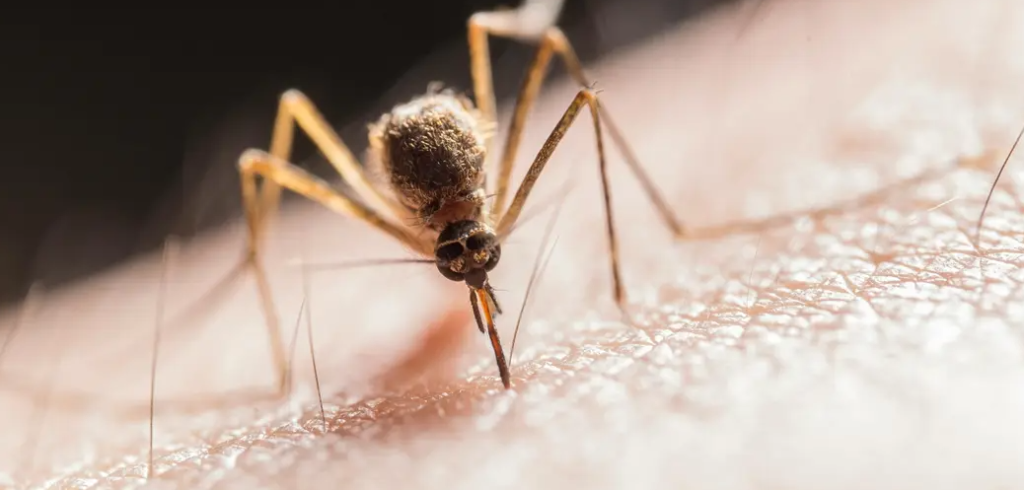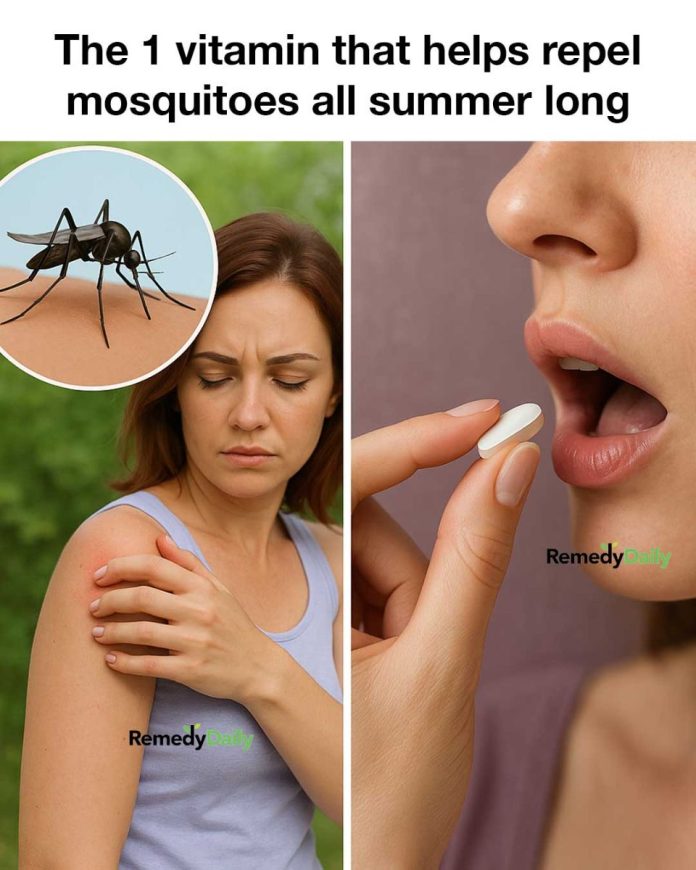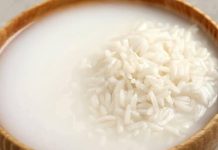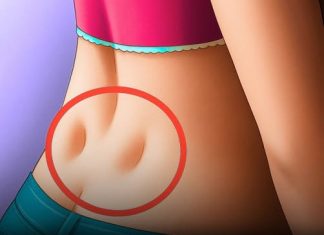Mosquitoes are not only an irritating summer pest, but also carriers of dangerous illnesses like malaria, West Nile virus, dengue fever, and Zika. As warmer months approach and outdoor activities increase, so does the concern about preventing mosquito bites. While chemical repellents such as DEET and picaridin are effective, many people seek natural and safer alternatives—especially for children and those with sensitive skin.
Among the lesser-known methods gaining popularity is the use of certain vitamins to reduce mosquito attraction. In particular, Vitamin B1 (thiamine) has drawn attention for its potential in naturally deterring mosquitoes by changing how the body smells to them.

How Can Vitamins Affect Mosquito Behavior?
Vitamins support numerous essential functions in the body, but some may also influence how attractive you are to mosquitoes. The idea behind vitamin-based mosquito repellents is simple: by altering your body’s natural scent through supplementation, you may become less appealing to mosquitoes. Some individuals claim that specific vitamins can reduce the number of bites they receive, especially during peak mosquito season.
A Closer Look at Vitamin B1 (Thiamine)
Vitamin B1, known scientifically as thiamine, plays a key role in helping your body convert food into energy. It also supports nerve function and cardiovascular health. Found in foods such as brown rice, sunflower seeds, legumes, and pork, thiamine is a water-soluble vitamin that must be consumed regularly through diet or supplements.
But why has this vitamin become associated with mosquito control?
The theory is that when taken consistently, thiamine can subtly alter the scent of your sweat. This change is believed to make your skin’s natural emissions less attractive—or even offensive—to mosquitoes. While humans generally cannot detect this odor, it may be noticeable to insects, which rely heavily on scent cues to find hosts.
Does Vitamin B1 Really Work Against Mosquitoes?
Despite widespread anecdotal support, scientific research on this topic remains limited. Some small-scale trials and personal testimonials suggest that B1 supplementation may reduce mosquito bites, but results vary from person to person. The scientific community has not yet confirmed B1 as a reliable mosquito repellent, and its effectiveness is still debated.
However, as a water-soluble vitamin, excess thiamine is excreted through urine, making it relatively safe when taken in standard doses. If you’re curious to try it, moderate supplementation under a doctor’s guidance may be worth considering—especially as part of a broader mosquito prevention plan.
If you’re interested in increasing your Vitamin B1 intake to potentially help repel mosquitoes, here are some excellent dietary sources:
- Whole grains (brown rice, oats, barley)
- Pork and lean meats
- Sunflower seeds
- Legumes (lentils, black beans)
- Green peas
- Fortified cereals and nutritional yeast
Supplements are also widely available, but it’s important not to overconsume any vitamin without medical advice.
Other Natural Remedies for Mosquito Control
In addition to exploring thiamine, you can also consider these popular natural methods to help deter mosquitoes:
1. Lemon Eucalyptus Oil
This oil is derived from the lemon eucalyptus tree and is one of the few plant-based products approved by the CDC for mosquito repellent use. Its active ingredient, PMD, offers long-lasting protection.
2. Lavender
Lavender essential oil emits a pleasant aroma to humans but repels mosquitoes. You can apply diluted oil to your skin or use it in a diffuser outdoors.
3. Cinnamon Oil
Cinnamon has strong antimicrobial properties and can also kill mosquito larvae. A diluted spray may be used on skin or fabrics.
4. Thyme
Burning thyme leaves in an outdoor setting can drive mosquitoes away, with studies showing up to 85% protection for up to 90 minutes.
5. Catnip Oil
Derived from the same plant that excites cats, catnip oil contains nepetalactone, which has shown greater effectiveness than DEET in some studies.
6. Soybean Oil
Gentle and safe for sensitive skin, soybean oil has been found to provide extended mosquito protection and is often a base ingredient in natural repellent products.
7. Citronella
This popular essential oil is used in candles, sprays, and lotions to mask human scent, thereby confusing mosquitoes.
8. Tea Tree Oil
Widely used for its antiseptic properties, tea tree oil also acts as an insect deterrent. It may help reduce bites and soothe irritated skin.
9. Geraniol
A floral-smelling compound extracted from geraniums, geraniol is often used in eco-friendly repellent sprays.

10. Neem Oil
Traditionally used in Ayurvedic medicine, neem oil has insecticidal properties that may be effective when applied to the skin in small amounts.
Final Thoughts: Blending Natural Defense with Caution
Mosquitoes can be relentless during summer months, but you don’t need to rely solely on synthetic repellents to protect yourself. Whether you’re trying Vitamin B1, using essential oils, or combining several methods, natural solutions may offer a gentle and holistic approach to mosquito control.
However, always test any topical product on a small area of skin first to ensure no allergic reactions occur. And if you’re considering new supplements—like thiamine—for repelling mosquitoes, talk to a healthcare provider, especially if you’re pregnant, breastfeeding, or managing a medical condition.
Ultimately, the best defense is a multi-layered strategy: wear protective clothing, avoid peak mosquito hours, use natural repellents, and consider safe vitamin supplementation as an added line of protection.

















